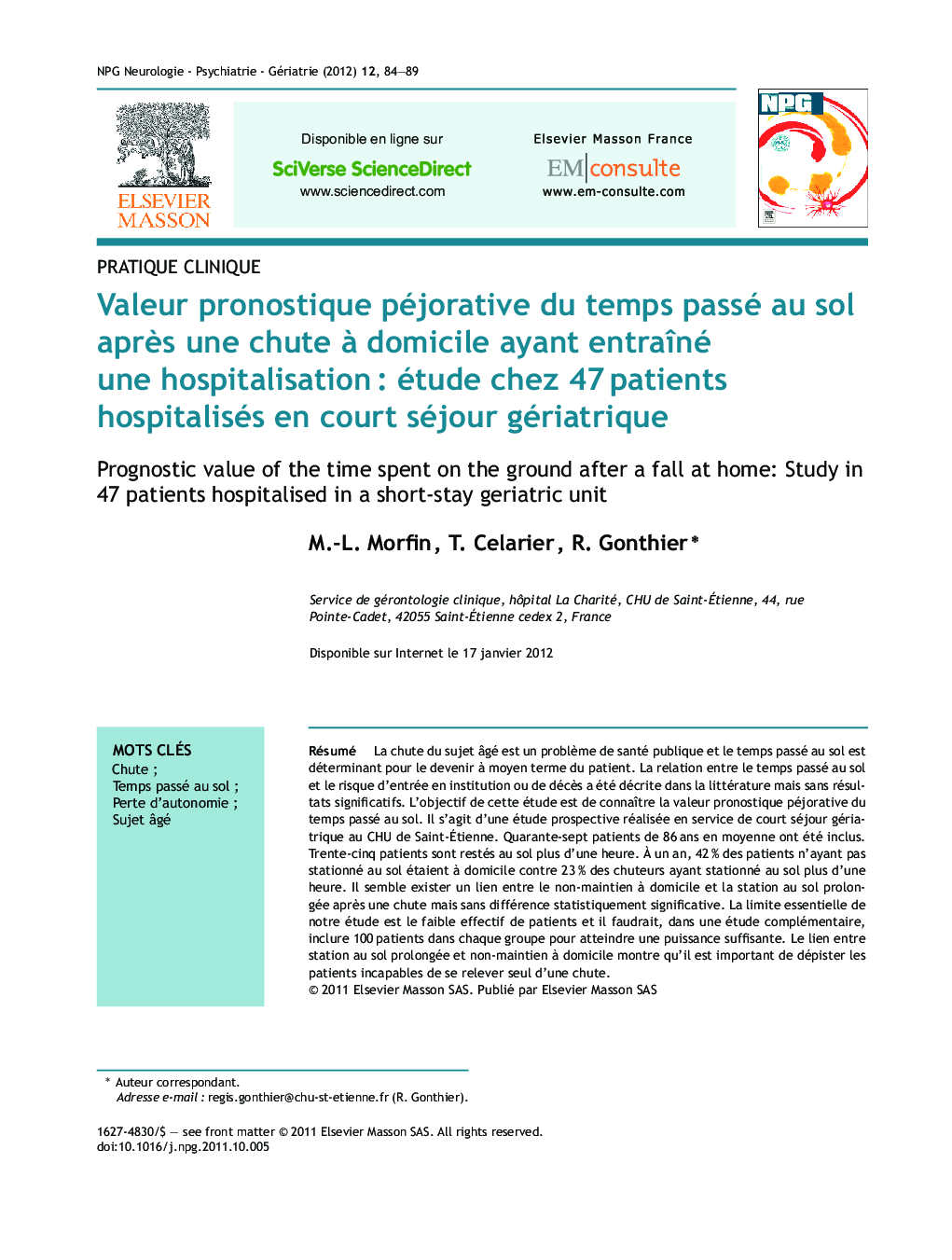| Article ID | Journal | Published Year | Pages | File Type |
|---|---|---|---|---|
| 3326157 | NPG Neurologie - Psychiatrie - Gériatrie | 2012 | 6 Pages |
Abstract
Falls and their consequences are a major public health problem, and the time spent on the ground is crucial for the patient's future outcome. The relationship between time spent on the ground, and the risk of admission to an institution or death, has been described in the literature but without significant results. The aim of this study is to define the pejorative prognostic value of time spent on the ground. This is a prospective study conducted in the short-stay geriatric unit of the university hospital centre in Saint-Etienne. Forty-seven patients aged a mean of 86 years were included. Thirty-five patients had remained on the ground more than an hour. At one year, 42% of the patients who had not remained on the ground were at home versus 23% of those who had remained on the ground more than an hour. There appears to be a link between the lack of home support and remaining on the ground long after a fall, but no statistically significant difference. The limitation of our study is the small number of patients and 100 patients should be included in each group to find significant results. The link between remaining on the ground for long and lack of home support shows that it is important to screen for patients unable to get upon their own after a fall.
Related Topics
Health Sciences
Medicine and Dentistry
Geriatrics and Gerontology
Authors
M.-L. Morfin, T. Celarier, R. Gonthier,
